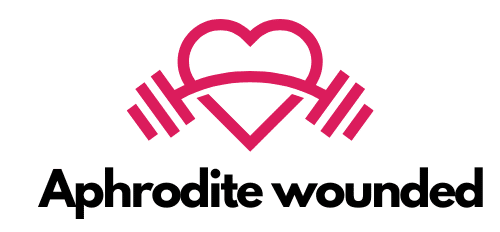How to Create a Healthy Meal Plan for a Dog with Liver Shunt?

Dogs are not just pets, they are part of the family, and like any family member, their health is of paramount importance. As a responsible pet owner, you will want to ensure that your furry friend receives a balanced diet, especially if they have a health issue such as liver shunt. A liver shunt, also known as a hepatic shunt, is a common disease in dogs where the blood bypasses the liver, thereby preventing this essential organ from cleaning toxins from the body. Therefore, it becomes critically important to monitor the diet of a pet with this condition. In this article, we’ll guide you on how to create a healthy meal plan for a dog with liver shunt.
Understanding the Role of Liver in a Dog’s Body
Before we delve into planning a diet, it’s important to understand the critical role the liver plays in a dog’s body. The liver is a unique organ with approximately 500 functions, which makes it one of the busiest organs in the dog’s body.
A lire également : What Are the Best Nutritional Plans for a Growing Great Dane Puppy?
The liver detoxifies blood, stores vitamins and minerals, converts stored sugar into functional sugar when the body needs it, and more importantly, it metabolizes proteins. When a dog has a liver shunt, these functions are compromised, and a special diet can play a pivotal role in managing the condition.
The Importance of a Hepatic Diet
A hepatic diet is specially formulated to provide the nutrients your pet needs and to help reduce the workload on the liver. This diet plays a significant role in managing a liver shunt as it limits certain nutrients that the liver has trouble processing, such as proteins and copper.
En parallèle : How to Safely Increase Exercise for an Inactive Indoor Cat?
Protein, although an essential nutrient for dogs, becomes a concern when dealing with liver shunt. A high-protein diet can lead to the accumulation of ammonia, a byproduct of protein metabolism, which the liver struggles to cleanse. Therefore, it’s essential to feed your dog a diet with moderate, high-quality protein.
Copper, on the other hand, is a mineral that is usually stored in the liver. However, in dogs with liver shunt, copper accumulates at toxic levels as the liver is unable to process and release it efficiently. So, a hepatic diet is designed to minimize copper intake.
Creating a Balanced Meal Plan
Drawing up a balanced meal plan for a canine living with a liver shunt requires careful thought and planning. It’s recommended to consult with a veterinary nutritionist to ensure your pet is getting the right balance of nutrients without overburdening the liver.
A common approach is to provide a diet low in animal proteins but rich in high-quality, easily digestible plant-based proteins. Foods like tofu, lentils, and quinoa are excellent sources of plant-based proteins and can be part of your dog’s meal plan. Similarly, dairy products such as cottage cheese and yogurt can also provide the protein your dog needs without causing strain on the liver.
Including fiber-rich foods in your dog’s diet is also beneficial. These foods help to absorb toxins in the gut and promote regular bowel movements, helping reduce the liver’s workload.
In terms of fats, while they should be limited, they must not be completely eliminated from the diet. Fats provide energy, and dogs with liver shunt need energy-rich foods. Therefore, ensure that the fats in your dog’s diet are easily digestible, such as medium-chain triglycerides found in coconut oil.
Supplements to Aid Liver Health
Along with a balanced diet, certain supplements can help support liver health. Milk Thistle is a popular supplement that is believed to have liver-protecting properties. It’s rich in antioxidants and can help to detoxify the liver. However, it’s recommended to consult your vet before introducing any supplement to your dog’s diet.
Vitamin B complex, vitamin E, and zinc are also beneficial for a dog with liver shunt. They can help to boost the immune system, help with digestion, and provide antioxidant support.
Remember, managing a liver shunt in dogs involves regular veterinary care, a balanced and suitable diet, and lots of love and patience.
Lifestyle Adjustments for Dogs with Liver Shunt
Besides a balanced diet, lifestyle adjustments can tremendously contribute to managing liver shunt in dogs. Regular exercise is crucial, but it’s essential to avoid overexertion as it may increase pressure on the liver. Therefore, gentle and regular walks are recommended.
Hydration is also crucial in managing liver disease. Fresh, clean water should always be available to your dog and if needed, you can encourage hydration by adding wet food to your dog’s meals or offering a low-sodium broth.
Regular vet check-ups are imperative in monitoring your dog’s condition. Blood tests can help determine whether the diet is effective and if the liver function is improving. Regular body weight measurements also provide insight into whether the dog’s nutritional needs are being met.
Remember, liver shunt management is a journey and not a one-time event. It requires patience, love, and constant monitoring. It’s also essential to watch for signs of hepatic encephalopathy, a potential complication of liver shunt, which includes symptoms like confusion, unsteady gait, and seizures. If you observe any of these symptoms, seek immediate veterinary attention.
Conclusion
Creating a healthy meal plan for a dog with liver shunt is a critical aspect of managing this condition. It involves providing a balanced diet high in easily digestible plant-based proteins, low in animal proteins and copper, and sufficiently rich in fiber and digestible fats. Supplements like Milk Thistle, Vitamin B complex, Vitamin E, and zinc can also aid in supporting liver health.
Nevertheless, it’s important not to overlook the vital role of regular vet check-ups, proper hydration, and gentle exercises in managing liver shunt in dogs. Remember, your furry companion relies on your love and care for their well-being. With patience and dedicated care, you can help your dog live a healthy, happy life even with a liver shunt.
As the adage goes, "An ounce of prevention is worth a pound of cure." So, be proactive in your pet’s health. Keep a consistent routine, maintain a balanced diet, monitor your pet’s health regularly, and consult your vet promptly if you notice any changes in your dog’s behavior or overall health. Your furry friend’s life and health are, after all, in your hands.
